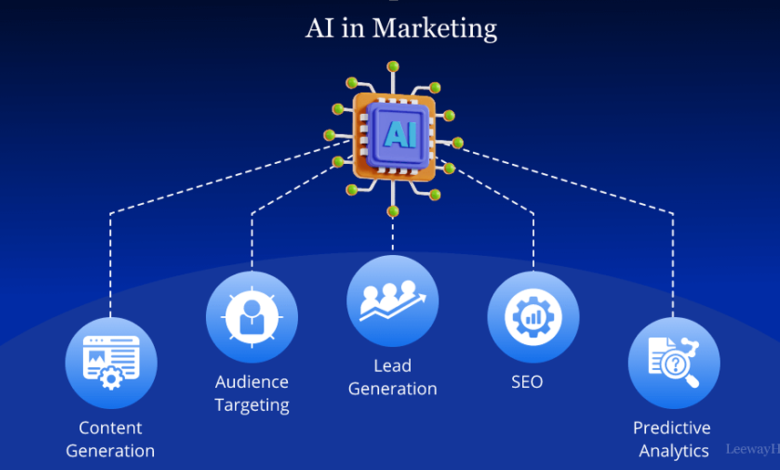The Future of Marketing: How AI is Transforming Digital Strategies

The Rise of AI in Marketing
Artificial Intelligence (AI) has dramatically changed the marketing landscape. From automating tasks to predicting consumer behavior, AI is now at the forefront of digital marketing strategies. Businesses are leveraging AI to gain insights, personalize customer interactions, and optimize advertising efforts. AI agents for marketing are helping brands streamline operations and enhance customer engagement.
Understanding AI-Powered Marketing Strategies
AI-driven marketing strategies are designed to improve efficiency, enhance customer targeting, and drive higher engagement. Here are some key ways AI is revolutionizing the marketing industry:
1. Personalized Customer Experiences
AI enables businesses to offer personalized experiences by analyzing vast amounts of customer data. Through machine learning algorithms, AI identifies patterns in user behavior and provides tailored recommendations. This leads to improved customer satisfaction and increased conversions.
See also: The Importance of Technology Assessments and Strategies for Business Success
2. Predictive Analytics for Better Decision-Making
Predictive analytics powered by AI allows marketers to forecast trends and customer behavior. By analyzing past data, AI can predict which products or services will be in demand, helping businesses make data-driven decisions.
3. AI-Generated Content and Copywriting
AI tools are now capable of creating high-quality content, including blogs, social media posts, and advertisements. Generative AI for marketing assists businesses in producing engaging and relevant content quickly, reducing the workload on human marketers.
4. Chatbots and Virtual Assistants
AI-powered chatbots provide instant customer support and handle inquiries efficiently. They enhance user experience by providing accurate responses and guiding customers through their purchasing journey.
5. Optimized Advertising Campaigns
AI analyzes consumer behavior and preferences to optimize digital ad campaigns. It helps businesses allocate budgets effectively, ensuring the right message reaches the right audience at the right time.
Implementing AI in Your Marketing Strategy
For businesses looking to integrate AI into their marketing efforts, the following steps can help ensure a seamless transition:
Step 1: Identify Your Marketing Goals
Before implementing AI, it is essential to define your marketing objectives. Whether it is improving customer engagement, increasing conversions, or enhancing content creation, AI can be tailored to meet specific needs.
Step 2: Choose the Right AI Tools
Selecting the right AI-powered tools is crucial for success. Businesses should explore AI solutions that align with their marketing goals, such as chatbots for customer service, predictive analytics software, or AI-driven content generators.
Step 3: Leverage Data for Insights
AI thrives on data. Businesses must collect and analyze customer data to gain valuable insights. AI algorithms use this data to predict trends and provide personalized recommendations.
Step 4: Monitor and Optimize Performance
AI marketing strategies require continuous monitoring. Businesses should track key performance metrics, analyze results, and optimize their AI-driven campaigns accordingly.
The Future of AI in Marketing
AI is set to play an even greater role in marketing in the coming years. With advancements in machine learning and natural language processing, AI will continue to improve customer interactions and automate complex tasks. Businesses that embrace AI-driven marketing strategies will gain a competitive edge and stay ahead of industry trends.
By integrating AI-powered solutions, brands can enhance efficiency, boost engagement, and drive higher conversions. The future of marketing is undoubtedly AI-driven, making it an essential tool for businesses looking to thrive in the digital age.




